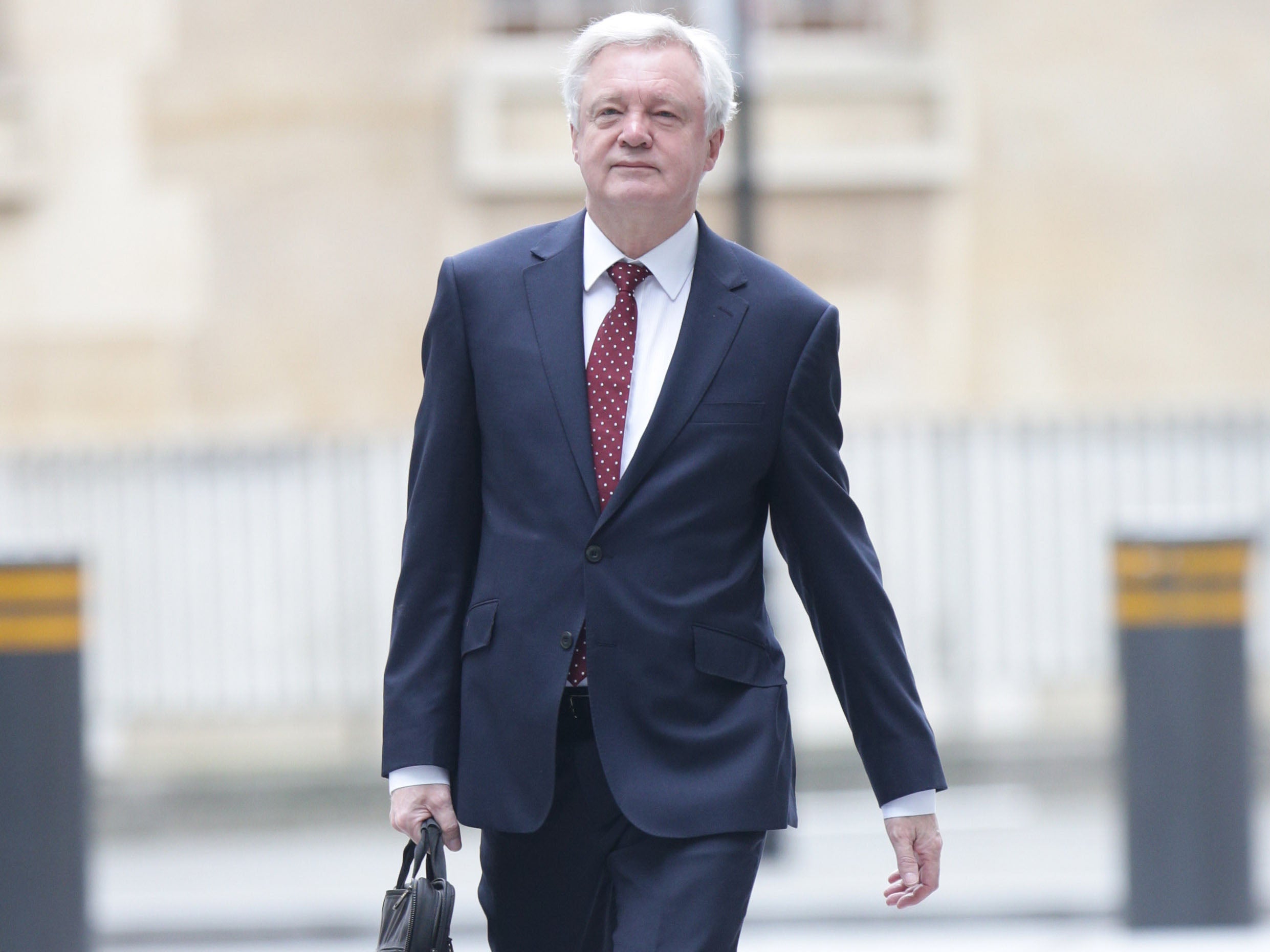David Davis says it's time 'to get down to business' with Brexit – in reality, the time is long passed
While the EU 27 represent about half of the UK's export earnings, the proportion of the rest of the EU’s exports to the UK is closer to 10 or 20 per cent. Thus, we need them more than they need us, and we need a deal more than they need a deal

“Getting down to business” in the Brexit talks, as David Davis has put it, has taken an unconscionable time. It is, after all, more than a year since the referendum, six months after Theresa May’s keynote speech on Europe at Lancaster House and many weeks since Article 50 was triggered. Already a tight timetable, and one which gave the EU27 side of the table considerable leverage. There is now precious little time for the British to persuade the Europeans to offer something attractive and saleable to the British people. There is even less chance, in other words, that Mr Davis’ promise – or aspiration? – that the UK would enjoy “exactly the self-same benefits” as it does now will be realised.
Mr Davis, it is said, likes to travel light in negotiations and tends not to bother with briefs as such reading can inhibit free, creative thought. Such imagination will be required as the nearest substitute weapon to hand for the negotiating power the British lack. This has only become apparent to all concerned comparatively recently.
Much was made by the Leave camp in the referendum campaign about the UK's trade deficit with the rest of the EU, and how keen French, German and other exporting nations would be to retain their lucrative market on this side of the Channel. Rather more is being made now, though, about the fact that while the EU 27 represent about half of the UK's export earnings, the proportion of the rest of the EU’s exports to the UK is closer to 10 or 20 per cent. Thus, we need them more than they need us, and we need a deal more than they need a deal.
The free-wheeling Mr Davis would also be well-advised to remember that it is now in the narrow national interest of, for example, France to restrict the UK's reach in financial services so that they can poach some of this lucrative business and the jobs and tax revenues that go with it. Rationally, no one would want to dispute the City’s pre-eminence and the contribution it makes to global financial stability as a public good. Yet it would be no surprise to see narrow national economic advantage coming before such noble ideals.
For now, Mr Davis will need to concentrate on the Irish border, the rights of EU citizens and, most fraught of all, the “divorce bill”. There is room for optimism on these at least. The question of the Northern Ireland land border with Ireland is really one driven by the two national governments concerned (given that Northern Ireland itself has not had a functioning Executive for some months now to contribute its view). The stakes are so high and the goodwill so great that this seems one area where even the most caustic of negotiators would be compelled to soften their stance. What remain are purely logistical questions about balancing the need for a “soft” border with the practicalities of trade and other restrictions that may come into force. Strange to say over this modern iteration of the ancient “Irish Question” that there is no matter of principle at stake; merely a conundrum about how to make the new world work smoothly.
On EU citizens, again there are grounds for hope. The UK's initial offer wasn’t sufficient to lift European spirits, but it was only an opening gambit. It is a more difficult question than first appears, with the rights of non-resident family members and the offspring of parents from either side of the Channel now beginning to be of concern, but the fact of approximately 1 million UK citizens in the EU should concentrate British minds. If the price of their continuing to receive healthcare and not suffer punitive discriminatory taxes is to offer the European Court of Justice some role in their fate, then it might be an exception worth granting.
Which leaves the "divorce bill". Here again there is some hope. The broad outlines of the principles which would underlie a settlement of the accounts are being discussed, rather than straight haggling, which does create some common ground. Winding down the rhetoric about making European bureaucrats “go whistle” would also help reach some sort of agreement, though the arguments will be semi-public, fierce and noisy.
So the three immediate priorities for the talks may find themselves being resolved rather more harmoniously than many suppose. Even so, that leaves huge questions about trade and exports of goods and, more importantly, services, and one of these won’t be addressed for months.
We already know that some sectors of the UK economy are critically endangered by Brexit – the car industry, aerospace, broadcasting, aviation, air travel, agriculture and pharmaceuticals in particular. They need settling as soon as possible, as declines in confidence and investment are already being felt. It is, indeed, long past time to be getting down to the business of trade.

Join our commenting forum
Join thought-provoking conversations, follow other Independent readers and see their replies